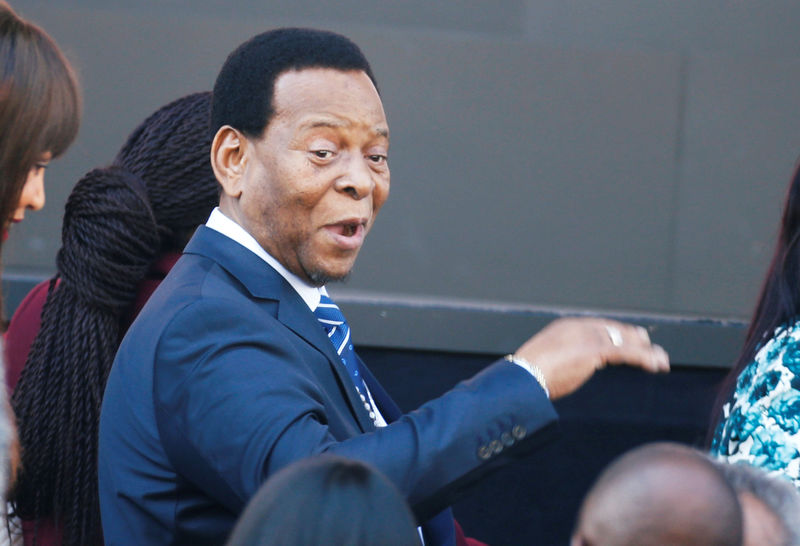
Zulu King and AfriForum Team Up Against Land Expropriation
Following Zulu King Goodwill Zwelithini’s announcement that he wants South Africa’s President Cyril Ramaphosa to sign an agreement promising to exclude territories that the monarch controls from the government’s land reform drive, the King has gone a step further and announced a partnership with AfriForum! Lobby group, AfriForum, is also opposed to land expropriation without […]

Following Zulu King Goodwill Zwelithini’s announcement that he wants South Africa’s President Cyril Ramaphosa to sign an agreement promising to exclude territories that the monarch controls from the government’s land reform drive, the King has gone a step further and announced a partnership with AfriForum!

Lobby group, AfriForum, is also opposed to land expropriation without compensation.
According to eNCA news channel, the Zulu King says he’s strengthening his relationship with AfriForum for the sake of agriculture and food security for all South Africans.
eNCA quotes the King saying: “The Zulu nation I’m talking about will not exist if we don’t have food. That’s why I say farmers must come closer so that we discuss what we can do when we talk about agriculture and the availability of enough food in the land.
“That’s why I’m asking AfriForum of the Boers to come and help us, as they’ve introduced themselves to me that they are willing to work with me and my father’s people to uplift agriculture in our land in order to have food.
“Because when government started talking about the appropriation of land expropriation without compensation, Boers downed tools. There is no food in South Africa.”
Reuters reports that the ruling African National Congress (ANC) is targeting white-owned land for expropriation while also seeking to provide security of tenure to the 17 million people – a third of South Africa’s population – who reside on tribal lands controlled by traditional leaders.
The king controls 2.8 million hectares under an entity called the Ingonyama Trust.
Last month a senior ANC official said the land reforms will include issuing title deeds to small-scale farmers on tribal lands, a departure from statements by Ramaphosa, who has pledged to the king that he would not touch the land he controls.
ENCA reported that the Zulu monarch said a signed agreement on the matter was needed during an address he made to thousands of his subjects inDurban on Sunday.
“The President must come here to tell me and the Zulu nation, which I will call to gather here. He must tell us and then sign an agreement that the land of the Zulus will not be touched,” the king was quoted as saying.
In July, the king warned of conflict over the issue. Other traditional leaders also publicly told the ANC not to undermine their authority on the 13 percent of South African territory they rule.
Tribal authorities in these areas – the former homelands where most blacks were confined under apartheid – have wide powers of land allocation and curtailing their power could have implications for a range of actors including mining companies which cut deals with the chiefs to access minerals.
Traditional Affairs Minister Zweli Mkhize told Reuters on Friday the government had not yet decided how land reform would happen in the tribal areas.
“We haven’t yet reached consensus. It is a somewhat slippery issue, we are still trying to find the best solution,” Mkhize said.
He said his ministry was discussing with traditional leaders and rural communities how best to ensure security of tenure for people living in tribal areas, whether through title deeds or other solutions.
(Additional reporting by Reuters’ Alexander Winning; Editing by James Macharia, Angus MacSwan and Jenni Baxter)
AmaZulu King Goodwill #Zwelithini says he's partnering with #AfriForum to promote agriculture and ensure food security. #MorningNewsToday Courtesy #DStv403o pic.twitter.com/cSwzc7ffOT
— eNCA (@eNCA) October 9, 2018
